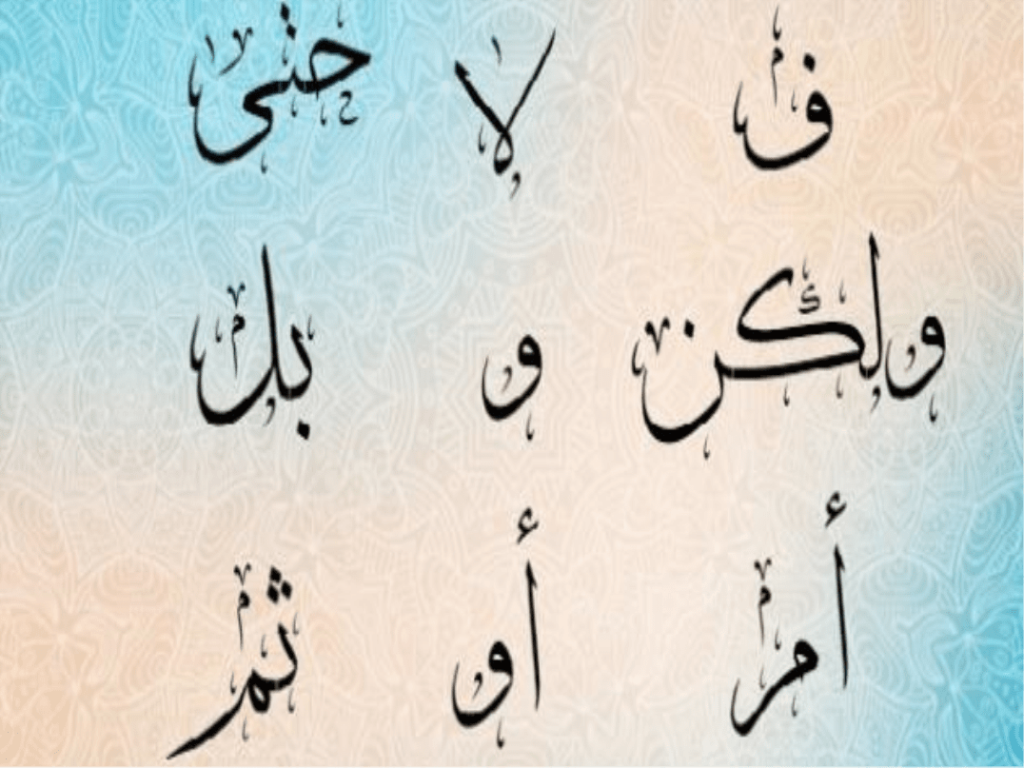Welcome to the Ultimate Guide on Arabic Connectors!
If you’re looking to enhance your Arabic language skills and create smoother, more natural-sounding sentences, you’ve come to the right place. As the first blog dedicated to this essential aspect of Arabic grammar, we’re here to provide you with the knowledge and tools you need to master connectors in Arabic.
Why are Arabic Connectors Important?
Connectors, also known as conjunctions or connecting words, play a crucial role in Arabic, just as they do in any language. They serve to:
- Link ideas: Connectors join words, phrases, and clauses, creating a logical flow of thought.
- Establish relationships: They show the relationship between different parts of a sentence, such as cause and effect, contrast, addition, or sequence.
- Improve fluency: Using connectors correctly makes your Arabic sound more natural and less choppy.
- Enhance comprehension: Clear use of connectors helps listeners and readers understand the intended meaning.
Common Types of Arabic Connectors
Arabic connectors can be categorized based on the type of relationship they establish:
Addition
These connectors add information or ideas.
- And – و (wa)
- Also – أيضاً (ʾayḍan)
- Likewise – كذلك (kaḏālik)
- In addition to – بالإضافة إلى (bil-ʾiḍāfah ʾilā)
- Moreover – علاوة على ذلك (ʿalāwah ʿalā dhālik)
- As well as – فضلاً عن (faḍlan ʿan)
Contrast
These connectors show a difference or opposition.
- But — لكن (lakin)
- But — ولكن (wa-lakin)
- However — مع ذلك (maʿa dhālik)
- Despite — على الرغم من (ʿalā al-raġhm min)
- Although — رغم أن (raghma ʾanna)
- Whereas — بينما (baynamā)
- As for — أما (ammā)
Cause and Effect
These connectors show a reason or result.
- Because – لأن (li-ʾanna) — used to explain a reason
- Because of – بسبب (bi-sabab) — due to, on account of
- Therefore – لذلك (li-dhālik) — so, for that reason
- As a result of that – نتيجة لذلك (natījah li-dhālik) — consequently, as a result
- Consequently – بالتالي (bi-tālī)
- For this reason – من أجل ذلك (min ajl dhālik)
Sequence
These connectors indicate order or time.
- Then – ثم (ṯumma)
- After that – بعد ذلك (baʿda dhālik)
- First – أولاً (ʾawwalan)
- Finally – أخيراً (ʾakhīran)
- Next – تالياً (tāliyān)
- Meanwhile – في هذه الأثناء (fī hādhihi al-ʾathnāʾ)
Condition
These connectors express a condition.
- If — إذا (ʾiḏā) — used to express a conditional if (usually in the past or general condition)
- If — إن (ʾin) — also means if (used in formal/standard conditional sentences)
- Unless — إلا إذا (ʾillā ʾiḏā)
- Provided that — بشرط أن (bi-sharṭ ʾanna)
- In case — في حالة (fī ḥālati)
Examples of Connectors in Arabic Sentences
Here are some examples of how connectors are used in Arabic sentences:
- I love reading and writing.
أحب القراءة و الكتابة.
(ʾuḥibbu al-qirāʾata wa al-kitābah.) - The weather is hot, but the sky is clear.
الطقس حار لكن السماء صافية.
(al-ṭaqsu ḥārr lakin al-samāʾu ṣāfiyah.) - I went to the market because I wanted to buy some fruit.
ذهبت إلى السوق لأنني أردت شراء بعض الفاكهة.
(ḏahabtu ʾilā al-sūqi li-ʾannī ʾaradtu širāʾa baʿḍ al-fākiha.) - I ate, then I went to the cinema.
أكلت، ثم ذهبت إلى السينما.
(ʾakaltu, ṯumma ḏahabtu ʾilā al-sīnimā.) - If you study well, you will succeed.
إذا درست جيداً، ستنجح.
(ʾiḏā darasta jayyidan, satanjaḥ.)
Tips for Mastering Arabic Connectors
- Learn the common connectors: Start by familiarizing yourself with the most frequently used connectors in each category.
- Practice with examples: Pay attention to how connectors are used in different contexts. Read Arabic texts and listen to Arabic conversations to observe their usage.
- Use them actively: Make a conscious effort to incorporate connectors into your own speaking and writing.
- Pay attention to nuances: Some connectors have subtle differences in meaning or usage. Consult a grammar resource or ask a native speaker for clarification.
Conclusion
Mastering Arabic connectors is essential for achieving fluency and clarity in the language. By understanding the different types of connectors and practicing their usage, you can significantly improve your ability to communicate effectively in Arabic. Keep practicing, and you’ll be connecting your Arabic sentences like a pro in no time!
Ready to take your Arabic to the next level?
Explore comprehensive Arabic language courses and grammar courses at Kaleela.com. Start your journey to fluency today!



